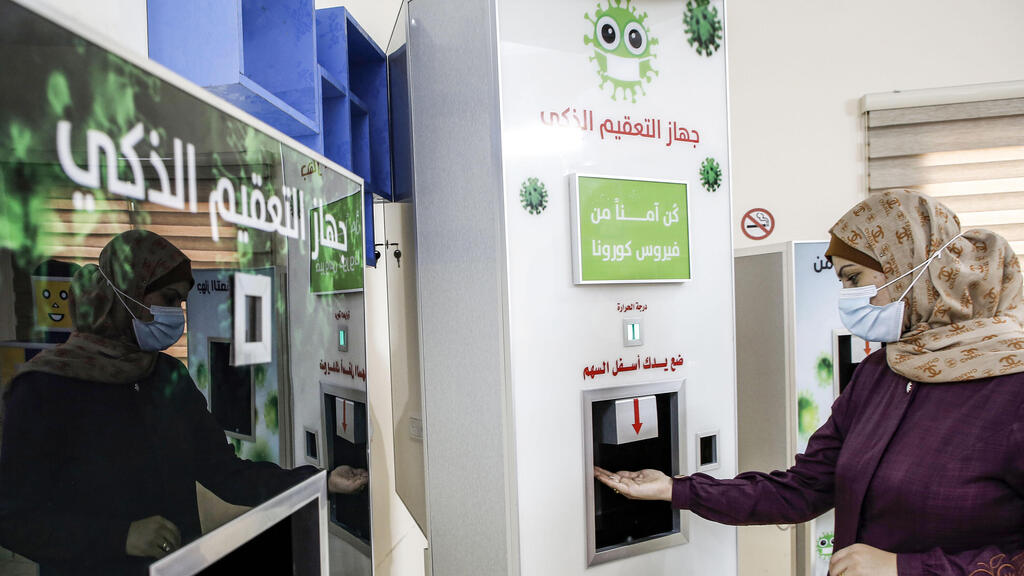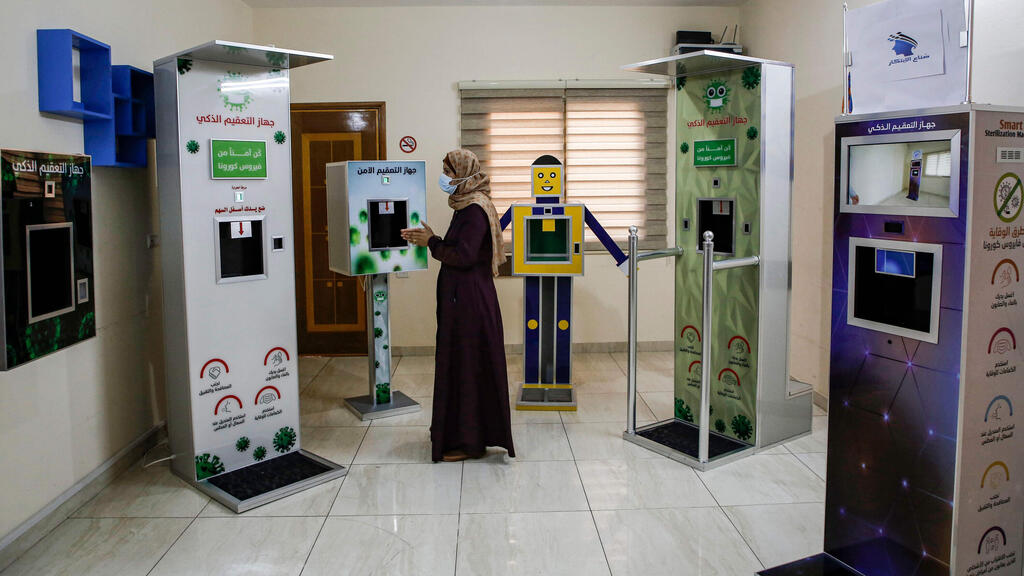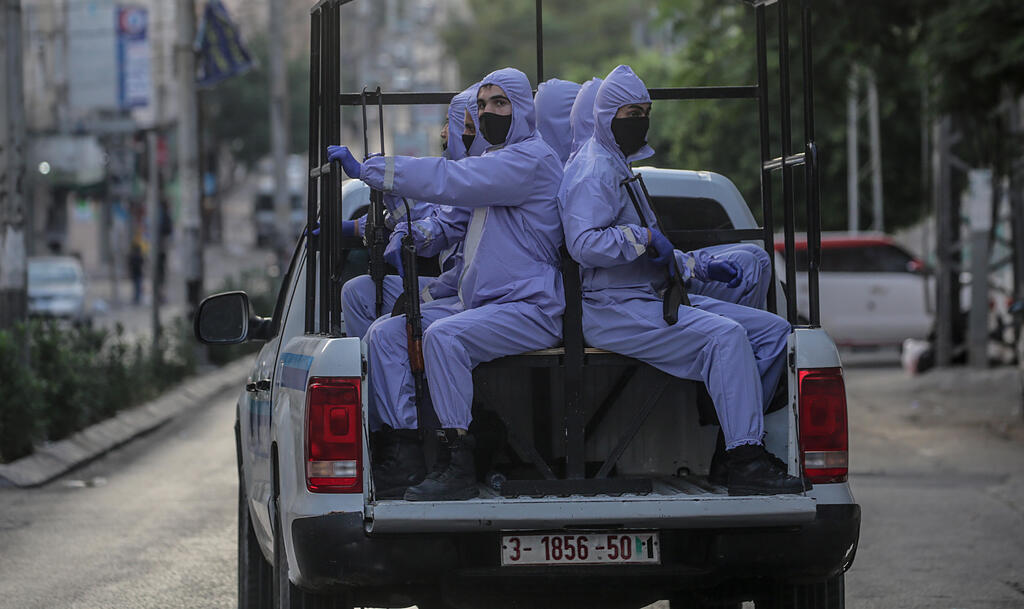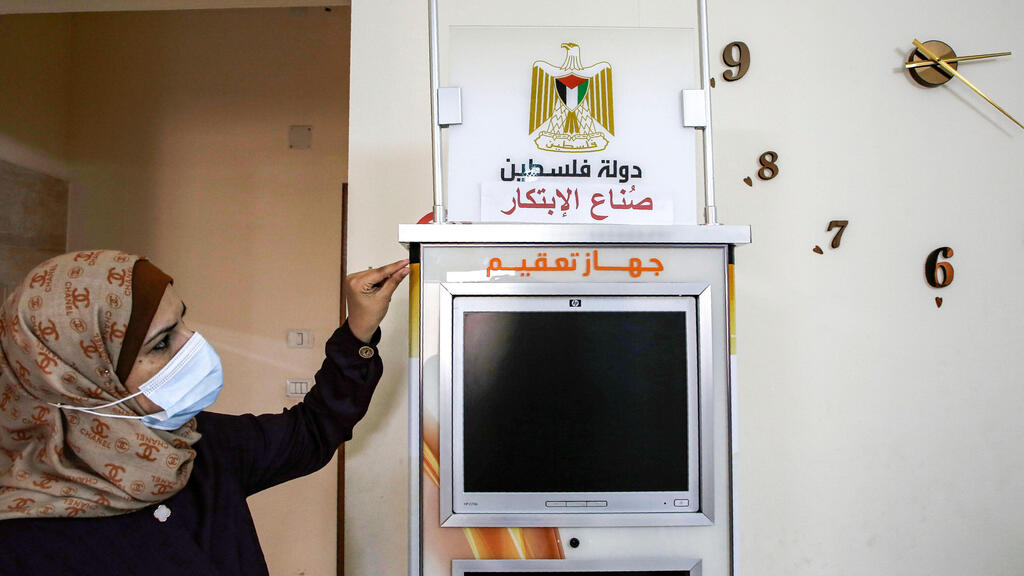Entering a Gaza City restaurant, customers are welcomed by a multi-tasking disinfection machine designed by a Palestinian businesswoman to curb the spread of the coronavirus in the crisis-hit enclave.
Spraying hand sanitiser while taking the person's temperature, the two-meter (around 6.6-foot) high device offers an all-in-one disinfection experience.
4 View gallery


Palestinian entrepreneur Heba al-Hindi demonstrates a locally-designed and manufactured smart sterilisation device in Gaza
(Photo: AFP)
If the body temperature is too high, a red signal will light up. Otherwise the restaurant door opens automatically to allow the customer in.
"In Gaza, we have basic devices imported from abroad to measure temperatures, and others to disinfect, but our devices combine multiple technologies in one," said creator Heba al-Hindi.
The densely-populated Palestinian coastal enclave, under an Israeli-enforced blockade since 2007, was initially largely spared by Covid-19 when the pandemic broke out.
But dire economic conditions, a poor healthcare system and chronic electricity shortages, partly caused by the blockade, made Gaza especially vulnerable to the virus.
Confirmed infections in the enclave have topped 5,440 with 31 deaths.
"When Covid-19 reached the Gaza Strip, I told myself I had to find a way to fight its spread," said Hindi.
"Then came the idea of creating a sanitiser and I designed these smart machines."
The 37-year-old mathematics graduate heads Innovation Makers, a company that has created eight anti-Covid products, including a blue and yellow robot-like machine to appeal to children.
She said the project makes money but that "our focus is not on the profit".
"We're focusing on a Palestinian product and a Palestinian invention from within the siege in the Gaza Strip, to show this invention to the world."
Innovation Makers has sold dozens of machines to supermarkets, bakeries and restaurants, for between $550 and $1,500 depending on the technology used.
The products have been patented by the Ramallah-based Palestinian economy ministry, in the West Bank.
The company finds spare parts for the devices on the local market but is barred by Israel from exporting the "Made in Gaza" creations, slowing down Hindi's ambitions.
Management at the Taboun restaurant is delighted with the disinfecting machines they bought.
"The device is remarkable," said Matar Matar, hospitality manager at the Gaza eatery, adding that he found out about it on social media.
Customers are happy to see that "something new is being developed in Gaza," he said.
Computer engineer Mohammad Natat, 23, said he was proud to be part of the team that created the machine.
"I had the opportunity to take part in this work and be creative in my field," he said. "It was a huge chance to have some work."
Around half of Gaza's population is out of work, two thirds of them young people, according to the World Bank, and more than two thirds of residents depend on humanitarian aid.




